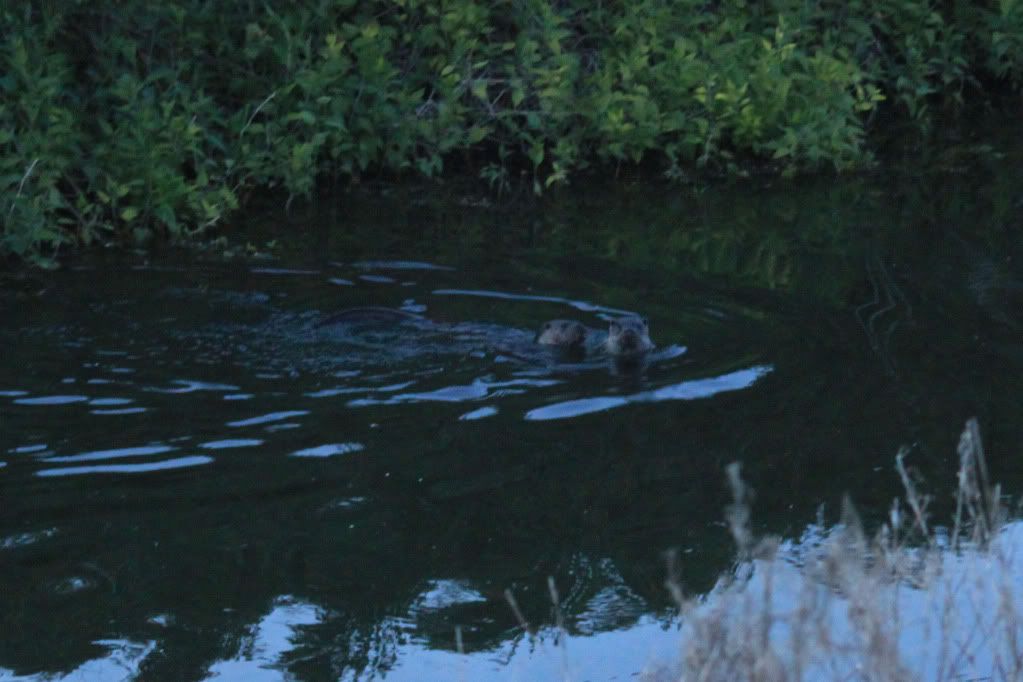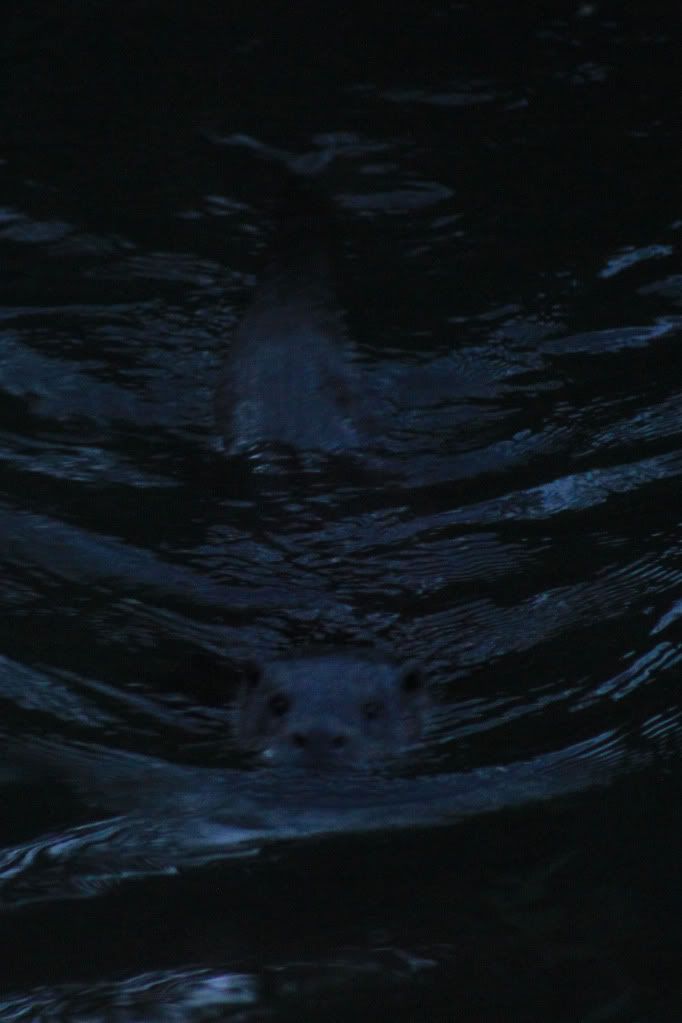Otters have featured several times in this blog, whether it is indicting them as the culprit of a crayfish mutilation; hypothesing on five-toe footprints in the snow or analysing the contents of their droppings.
It is one of the new year's resolutions of this blog to try and see an otter in the wild. Whilst photographing water voles one evening, there was a commotion amongst the nearby mallards and not one, but three otters showed themselves.
Having watched them swimming and diving below the water, two cubs (or puppies or kits depending upon noun preference) obliged for a photograph and stuck their heads above the water - photographs are dark and grainy as a high ISO (3200) and no flash was used.
.
.
And the mother who could obviously detect my presence on the river bank came for a closer look:.
.
.
Otters are a controversial subject at the moment (although not as much as badgers). Some, like the Environment Agency, view their return as an indication that British rivers are returning to their former health.
Others, having seen rivers adversely affected by poor management, pollution and the introduction of invasive species like the signal crayfish (who eat fish eggs in vast numbers), view the return of a top predator, which can eat 15% of its own weight each day, as yet another contributer to the decline in numbers of fish and other wildlife, especially aquatic birds.
Yet from conversations I've had alongside the river it transpires there have been otters on the Ock a lot longer than this blog has been in existence, and apparently last year there were three cubs.
So maybe, the Environment Agency's predictions are correct and the river has reached a natural stability, even if some of the damage cannot be undone, and given the otters fondness for crayfish, maybe they can even help the situation.
Two new year's resolutions done (badgers and otters). The next one on the list: a seemingly insignificant, hard to identify and very rare insect.
Update: In an interesting comment below, Anne says "I've read that otters may keep the numbers of introduced mink down".
The relationship between mink and otters is a somewhat complex subject. Otters can attack and drive mink out their territory, but scats and spraints have been found together, indicating that mink can change their behaviour to avoid the otters.
None the less, mink were once seen on the Ock and as far as I'm aware there haven't been any sightings for a few years. So maybe breeding otters have, as Anne suggests, have had an affect and could be partially responsible for recent water vole resurgence.


I've read that otters may keep the numbers in introduced mink down, which could benefit water voles. Perhaps it's a bit like returning wolves to Yellowstone. They had a complex effect, including the reappearance of beaver and moose in the park. Anyway, otters are so beautiful!
ReplyDeleteHi Anne,
ReplyDeleteThanks for your comment, in response to very interesting point I've updated the post to discuss otters and mink on the Ock.
I can't begin to tell you how envious I am...well done!!!!
ReplyDeleteMartin Gulliver
Thanks Martin, I still can't believe I've actually seen them.
ReplyDeleteWow, well done! I've never seen a wild otter, ever.
ReplyDeleteHi Kate,
ReplyDeleteI suspect those few short minutes will be last I'll see of them and I'll probably never see a wild otter again.
I captured the briefest of glimpses on film of this group just after dusk a few nights ago. They were a couple of miles upstream from where you saw them and swimming strongly, so were gone in seconds.
ReplyDeleteMike
Hi Mike,
ReplyDeleteThank you for you comment and I hope you've found the blog interesting. It's great to see others have seen them and they're territory is so long.
If you think your film is worth sharing, please put it on a file sharing site (youtube or photobucket, for example) and I'd glady post it here.
Have you seen any mink or water voles along that stretch (or anything else of interest)? Or if you get any more otter sightings. As the cubs seem quite large I expect they'll separate from their mother shortly so it will be interesting to see if they stay on the Ock
Richard